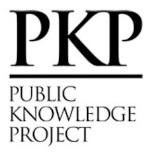Knowledge Management Barriers in the Brazilian Energy Sector
DOI :
https://doi.org/10.22408/reva802023783e-8095Résumé
Paper aims: Nowadays, there are happening profoundly changes in the energy sector worldwide. The principal innovations are sustainability, the growing share of renewable energy sources, and energy efficiency. Knowledge Management (KM) is a critical process in energy companies. KM implementation is harmfully affected by factors known as KM barriers. This paper aims to identify those barriers.
Originality: Knowledge management is fundamental to most organizations’ strategy and operations in the energy sector. However, the energy companies need to overcome KM barriers. These issues are rarely addressed in the literature.
Research method: This empirical, theoretical study is a qualitative approach, descriptive and exploratory. The research adopts the single case study method, having semi-structured interviews and participant observation to identify KM barriers.
Main findings: Results demonstrate that the lack of incentive from top management, lack of motivation for sharing, staff retention hardship, and focusing merely on operations efficiency was identified as the main barriers to develop KM.
Implications for theory and practice: These perspectives have not been explored yet and shall open a new approach to knowledge management implementation in energy companies. It offers practical guidance for diffusing and deploying KM initiatives in the energy sector.
Téléchargements
Références
Adil, A. M.; Ko, Y. (2016). Socio-technical evolution of Decentralized Energy Systems: A critical review and implications for urban planning and policy
Alagoz, B.; Kaygusuz, A. (2016). Dynamic energy pricing by closed-loop fractional-order PI control system and energy balancing in smart grid energy markets. Transactions of the Institute of Measurement & Control. Vol. 38 Issue 5, p565-578.
Anantatmula, V.S. (2008), Leadership role in making effective use of KM”, Journal of Information and Knowledge Management Systems, Vol. 38 No. 4, pp. 445-460.
Barber KD; Munieve- Hernandez E.; Keane J.P. (2006) Process-based knowledge management system for continuous improvement. International Journal of Quality & Reliability Management, v. 28, n. 8, p. 1002-1018.
Bartczak, S. (2002) Identifying barriers to knowledge management in the united states military. Americas Conference on Information Systems (AMCIS).
Bollino, C. A.; Madlener, R. (2016). Foreword to the Special Issue on High Shares of Renewable Energy Sources and Electricity Market Reform; Energy Journal, v. 37, 2016
Chaudhry, A. S. (2005). Knowledge sharing practices in Asian institutions: A multicultural perspective from Singapore. In Proceedings of 71th IFLA general conference and council, Oslo, Norway, August 14–18.
Choi, S. Y.; Lee, H.; Yoo, Y. (2010) The impact of information technology and transactive memory systems on knowledge sharing, application, and team performance: A field study. MIS Quarterly, v.34, n. 4, p. 855–870.
Connelly, C.E. and Kelloway, E.K. (2003), “Predictors of employees’ perceptions of knowledge-sharing culture”, Leadership & Organization Development Journal, Vol. 24 Nos 5/6, pp. 294-305
DATTERO, Ronald et al. The knowledge audit: Meta-Matrix analysis. Knowledge Management Research & Practice, v. 5, n. 3, p. 213-221, 2007
Edwards, J.S. (2008), “Knowledge management in the energy sector: review and future directions,” International Journal of Energy Sector Management, Vol. 2 No. 2, pp. 197-217.
Evangelou, Christina and Karacapilidis, Nikos and Tzagarakis, Manolis (2006), On the Development of Knowledge Management Services for Collaborative Decision Making,
Volume 1, Journal of Computers
Girard, J. P.; Girard, J. L. (2015). Defining knowledge management: Toward an applied compendium. Online Journal of Applied Knowledge Management. Vol. 3 Issue 1, p1-20. 20p.
Holmen, E., Pedersen, A.C. and Torvatn, T. (2005), “Building relationships for technological
innovation”, Journal of Business Research, Vol. 58 No. 9, pp. 1240-50
Holmen, E., Pedersen, A.C. and Torvatn, T. (2005), “Building relationships for technological innovation, Journal of Business Research, Vol. 58 No. 9, pp. 1240-50.
Hong, D.; Suh, E.; Koo, C. (2011) Developing strategies for overcoming barriers to knowledge sharing based on conversational knowledge management: a case study of a financial company. Expert Systems with Applications, v. 38, n. 12, p. 14417-14427.
Jardon, C. M. (2015) The use of intellectual capital to obtain competitive advantages in regional small and medium enterprises. Knowledge Management Research & Practice, v. 13, n. 4, p. 486–496.
Kululanga, G.K; Mccaffer, R. (2001) Measuring knowledge management for construction organizations, Engineering, Construction, and Architectural Management, v. 8, n. 5/6, p. 346-354.
Marques, J. M. R.; La Falce, J. L.; Marques, F. M. F. R.; Muydler, C. F. de; Silva, J. T. M. (2019) The relationship between organizational commitment, knowledge transfer and knowledge management maturity, Journal of Knowledge Management. v. 23, n. 3, p. 489-507.
McDermott, R. and O’Dell, C. (2001), ‘‘Overcoming culture barriers to sharing knowledge’’, Journal of Knowledge Management, Vol. 5 No. 1, pp. 76-85.
MD. Singh, R. Kant; (2008) Knowledge management barriers: an interpretive structural modeling approach; International Journal of Management Science and Engineering Management, 3 (2) , pp. 141-150
Nisar, A.; Palacios, M.; Grijalvo, M. (2016). Open organizational structures: A new framework for the energy industry. Journal of Business Research. Nov2016, Vol. 69 Issue 11, p5175-5179. 5p.
Nonaka, I.; Kodama, M.; Hirose, A.; Kohlbacher, F. (2014): Dynamic fractal organizations for promoting knowledge-based transformation: A new paradigm for organizational theory. European Management Journal, 32: p. 137– 146.
Nonaka, I. and Takeuchi, H. (1995), The Knowledge‐creating Company: How Japanese Companies Create the Dynamics of Innovation, Oxford University Press, New York, NY.
Oluikpe, P.I. (2012), Developing a corporate knowledge management strategy, Journal of Knowledge Management, Vol. 16 No. 6, pp. 862-878
Riege, A.(2005) Three‐dozen knowledge‐sharing barriers managers must consider. Journal of Knowledge Management, v. 9, n. 3, p. 18-35.
Ruttem, W.; Blaas, J.; Martin H. (2016) The impact of (low) trust on knowledge sharing. Journal of Knowledge Management, v. 20, n. 2, p. 199-214.
Ruiz-Abellon, M. d. C.; Gabaldon, A.; Guillamon, A. (2016). Dependency-Aware Clustering of Time Series and Its Application on Energy Markets. Energies (19961073). Oct2016, Vol. 9 Issue 10, p1-22. 22p.
Salies, E. (2010). A test of the Schumpeterian hypothesis in a panel of European electric utilities. J.L. Gaffard, E. Salies (Eds.), Innovation, Economic Growth, and the Firm, Edward Elgar Publishing
Singh, M. D.; Kant, R. (2008) Knowledge management barriers: An interpretive structural modeling approach. International Journal of Management Science and Engineering Management, v. 3, n. 2, p. 141-150.
Schaeffer, G. J. (2015). Energy Sector in Transformation, Trends, and Prospects. Procedia Computer Science; 2015, Vol. 52, p866-875, 10p
Tan, L. P.; Wong, K. Y. (2015) Linkage between knowledge management and manufacturing performance: A structural equation modeling approach. Journal of Knowledge Management, v. 19, n. 4, p. 814–835.
Sveiby, K.E. (2001), Knowledge Management – Lessons from the Pioneers, Global Brands – Sveiby Associados, available at www.providersedge.com
Sveiby, K.-E. and Simons, R. (2002), “Collaborative climate and effectiveness of knowledge work”, Journal of Knowledge Management, Vol. 6 No. 5, pp. 420-33.
Yin, R.K. (2013). Case study research: Design and methods. , 5th edition, London: SAGE Publications.
Ziviani, F.; Ferreira, M. A. T. (2017) Práticas de Gestão da Inovação no setor elétrico brasileiro: a percepção dos gerentes de pesquisa e desenvolvimento. Revista de Administração da Universidade Federal de Santa Maria, v. 10, n. 1, p. 24-41.
Téléchargements
Publié-e
Comment citer
Numéro
Rubrique
Licence
Autores que publicam nesta revista concordam com os seguintes termos:
Autores mantêm os direitos autorais e concedem à revista o direito de primeira publicação;
Autores têm permissão e são estimulados a publicar e distribuir seu trabalho online (ex.: em repositórios institucionais ou na sua página pessoal) já que isso pode gerar alterações produtivas, bem como aumentar o impacto e a citação do trabalho publicado
Em virtude da aparecerem nesta revista de acesso público, os artigos são de uso gratuito, com atribuições próprias, em aplicações educacionais e não-comerciais.











